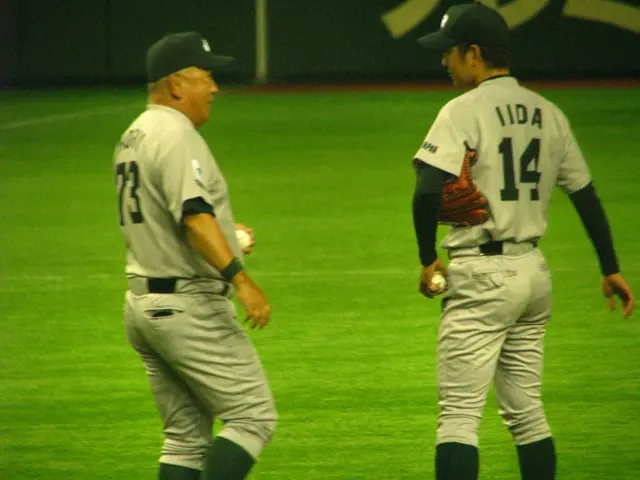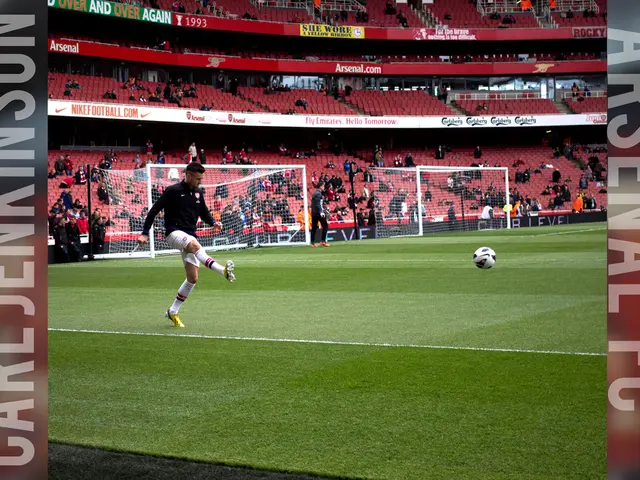UFC business model faces astonishing legal disruption
By Mikey B
Facebook Twitter Whatsapp E-Mail Print Copy Link
In the world of Mixed Martial Arts (MMA), athletes aren't employees but freelance warriors, bound strictly by contract to fight promoters such as the Ultimate Fighting Championship (UFC). This unique arrangement has long shielded the UFC from losing top talent to competitors quickly. However, a storm is brewing that could shatter this status quo.
UFC's financial power has been a point of contention within the industry for quite some time. Countless fighters have voiced discontent over their paychecks, alleging that the UFC exploits its dominant market position. This turmoil culminated in a decade-long class action lawsuit that settled for a staggering $375 million, leaving wounds still raw. Now, two fresh legal battles have risen, threatening to upend UFC's established business model, with implications that could rock the entire MMA realm.
Within the UFC, fighters aren't employees, but rather exclusive providers of services. They're tethered by contractual obligations, taking on an average of one fight every six months due to the pervasive risk of injury. Different clauses in these contracts extend their tenures, be it due to declined fights, injuries, or title victories.The more substantial the organization, the more intricate these contracts become—almost always to the disadvantage of the fighter.
Inside the Octagon... ... it's back in action on June 14 with OKTAGON 72 on RTL.
The aftermath of the previous legal dispute revealed several former UFC fighters suing Zuffa LLC, UFC’s parent company. The UFC wanted to settle the case silently, but the judge dismissed this and expressed concerns about the UFC's alleged monopoly position, the inadequate settlement offered, and the restrictive clauses in UFC contracts that kept more fighters from joining the lawsuit.
Fast forward to today, and the first of the new lawsuits against the UFC revolves around these exact issues. The primary concern is compensation for UFC fighters who have been unable to file a lawsuit due to contract clauses. Eliminating these barriers would significantly swell the potential plaintiff pool, potentially garnering damages in the hundreds of millions.
The second lawsuit, commenced at the end of May, presents an unusual twist. Filed by a former UFC fighter named Phil Davis, this suit doesn’t seek damages. Instead, Davis aims to uncover the impact of the UFC's monopolistic position on fighters' remuneration in other organizations. He argues that the restrictive nature of UFC contracts hinders professional MMA event organizers like the Professional Fighters League (PFL) from assembling high-caliber rosters competing at the same level as the UFC.
Davis’ predicament highlights the issue. Despite ranking eighth in the UFC's welterweight rankings, he fails to secure matches offering decent compensation. Davis takes aim at UFC's contractual practices, particularly their policy of binding top fighters under extended contracts with restrictive terms. He champions the introduction of a "sunset clause," a provision that automatically frees certain obligations after a specified timeframe, effectively ending contracts before their stated term.
While this clause was once included in UFC contracts following the initial antitrust lawsuit in 2014, it was later scrapped after fighters like Francis Ngannou utilized it to break free from UFC control and secure more advantageous contracts with other organizations. Ngannou still had one fight remaining on his contract but opted to patiently wait out its term.
Davis is now advocating for a one-year "sunset clause," a move that could send shockwaves across the MMA world. Many UFC fighters might seek employment with other organizations in a matter of months, renegotiating their wages each time. While such a shift guarantees market-driven pay, large organizations would face an uncertaincontractual future, with reduced stability.
If the UFC were to adopt this clause, other organizations might be compelled to do the same, triggering a wave of rapidly changing rosters across the MMA landscape.This could lead to a significant erosion of the UFC's financial health, as its marquee fighters might migrate to rival organizations in pursuit of bigger paydays.
The ultimate success of both lawsuits remains uncertain, but given the judiciary's existing concerns about the UFC's potential monopolistic stance, both cases appear poised for lengthy legal battles.
Sources:
- Mixed Martial Arts
- Ultimate Fighting Championship
Enrichment Data:Overall: The new antitrust lawsuits against the Ultimate Fighting Championship (UFC) challenge its business model, focusing on contractual issues and monopolistic practices.
Legal and Financial Consequences
- Potential Financial Burden: Successful lawsuits may require the UFC to pay substantial damages, adding to its financial strain and potentially impacting its profitability.
- Contractual Challenges: The lawsuits dispute the enforceability of exclusivity clauses, threatening the UFC's ability to retain top talent and negotiate favorable contracts.
- Reputational Fallout: Repeated legal battles may harm the UFC's reputation within the MMA community, making it harder to attract and retain top fighters or lucrative partnership deals.
Market Structure and Competition
- Diminished Market Control: If the UFC is found to exert undue influence, its grip on top fighters will weaken, allowing competitors like the Professional Fighters League (PFL) or Bellator to attract more high-caliber talent.
- Heightened Fighter Pay: Increased legal scrutiny may force the UFC to raise fighters' compensation to remain competitive, raising labor costs and lowering profit margins.
- Lingering Market Fragmentation: The lawsuits suggest that the UFC's dominance keeps the MMA market fragmented, hindering overall fighter pay and restricting opportunities in the broader industry. A ruling against the UFC could promote a more balanced and competitive market.
Long-term Implications
- ** heightened regulatory oversight:** The ongoing legal challenges could instigate increased regulation of MMA contracts, impacting the entire industry.
- Necessary Strategic Adaptations: If the UFC's core business model is undermined, it may need to shift its focus towards partnership, licensing, or alternative revenue streams.
Mixed-martial-arts athletes, bound by contractual agreements with the Ultimate Fighting Championship (UFC), are questioning the fairness of their compensation as the sports industry's dominant player. The UFC's unique business model, which classifies fighters as service providers rather than employees, is now the subject of two fresh lawsuits, challenging this arrangement and potentially upending the entire mixed-martial-arts realm.
The ongoing legal disputes against the UFC revolve around compensation for fighters affected by contract clauses, aiming to eliminate restrictions that have prevented a substantial number of fighters from filing lawsuits in the past. These lawsuits could potentially generate damages in the hundreds of millions, potentially causing ripples throughout the mixed-martial-arts realm.







